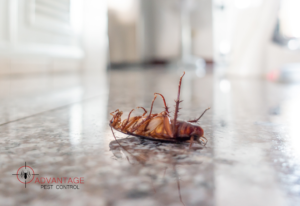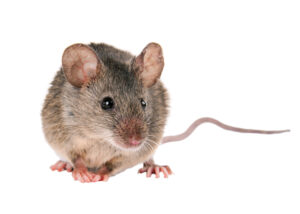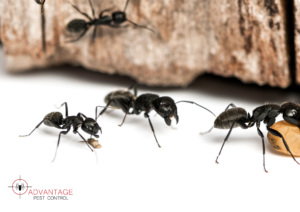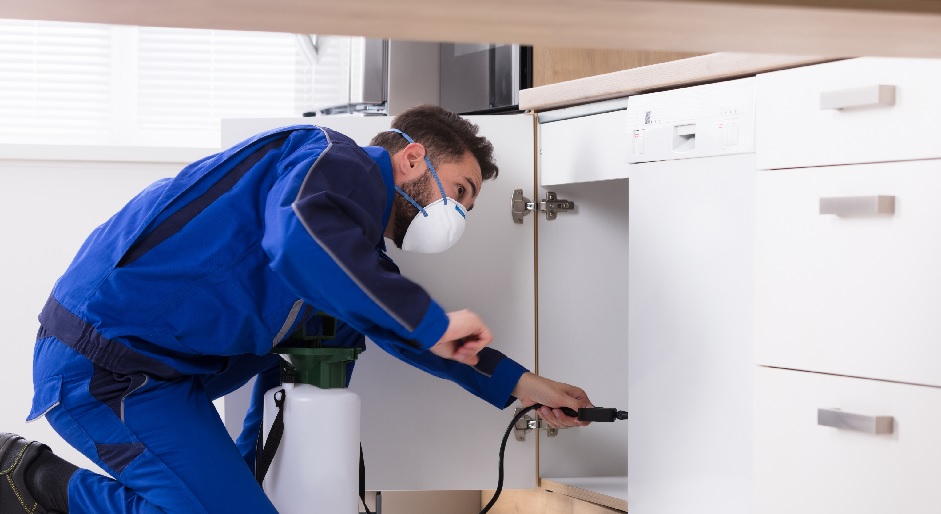The pandemic has been a proving ground for every trade. That includes the pest management sector, where unique circumstances and heightened infestation risks have kept even the pros on their toes.
Paolo Bossio is all too familiar with containing pests during – and after – the pandemic. As president of Advantage Pest Control, he and his team have been hard at work helping apartments fight back against an upswell of rats, mice, roaches, and bedbugs who have been attracted to excess food sources in multi-residential buildings.
 “It’s like watching a great migration,” Bossio says. “When all these restaurants, delis, and bakeries shut down during the pandemic, they started delivering food to apartment and condo residents instead. That diverted rats, mice, and roaches away from the shops where they used to hang out and into buildings where there were these huge sources of food. And now, they’re sticking around.”
“It’s like watching a great migration,” Bossio says. “When all these restaurants, delis, and bakeries shut down during the pandemic, they started delivering food to apartment and condo residents instead. That diverted rats, mice, and roaches away from the shops where they used to hang out and into buildings where there were these huge sources of food. And now, they’re sticking around.”
The influx of food orders also generated more food waste, both within apartment garbage chutes and the bins waiting below.
“The chutes became a new food source for roaches, which meant we had to start addressing them with not just insecticides, but cleaning agents as well,” Bossie explains. “We’re not cleaners, but we had to start adding cleaning agents into our sprays because we knew eliminating those additional food sources would push pests to feed off our products instead.”
 The chutes were only half the problem. Down below, apartments often found themselves with large volumes of food waste in their garbage bins that attracted even more vermin and pests. And while some buildings upped their garbage pick-up cycles to accommodate, getting someone to pick up the infested deposits could not be taken for granted.
The chutes were only half the problem. Down below, apartments often found themselves with large volumes of food waste in their garbage bins that attracted even more vermin and pests. And while some buildings upped their garbage pick-up cycles to accommodate, getting someone to pick up the infested deposits could not be taken for granted.
“What would happen is garbage companies would go to do their collections, see a bunch of rats there, and decline to pick them up. That would pose another issue for us, because if the rats were left with that tremendous and untouched food source, they wouldn’t go for our bait or traps,” says Bossio.
It was an interesting challenge, and one that called on Advantage Pest Control to put its dynamic approach to the test. With tantalizing garbage chutes and overstuffed bins stealing pests’ appetites away from the company’s bait, the team turned to sneakier tactics.
“We had to kind of come up with strategies to intrigue the rats to feed off of our product and not the bins,” recalls Bossio. “One way we did that is by literally moving the bins from one side of the parking lot to the other side and then replacing them with boxes with our rodenticides to mimic what they were feeding off of.”
Another strategy, he continues, was to rotate the type of bait they were placing in order to ensure pests weren’t becoming resistant to the same deadly meal.
“Over time, they catch on,” Bossio warns. “German roaches are highly adaptable, so we respond by literally taking all the product off the shelf once we’ve used it for a month or two and cycle it out with a new product. It keeps them on their toes.”
Thinking outside the takeout box
Problem-solving has been a critical asset for pest management professionals. This is true when it comes to finding new ways for pests to take the bait and – more importantly – when keeping apartment residents safe.
 “Remember, people couldn’t really leave their apartments during the pandemic. Many were kind of stuck there. That meant we couldn’t just go in and spray; we had to take each unit on a case-by-case basis and figure out the best solution, whether that was to use aerosols, apply gels, vacuum, steam, or whatever was best and safest for the situation,” says Bossio.
“Remember, people couldn’t really leave their apartments during the pandemic. Many were kind of stuck there. That meant we couldn’t just go in and spray; we had to take each unit on a case-by-case basis and figure out the best solution, whether that was to use aerosols, apply gels, vacuum, steam, or whatever was best and safest for the situation,” says Bossio.
Combatting bed bugs requires its own degree of problem-solving. For example, Bossio recalls a job where his team was asked to help a client overcome its chronic bed bug problem. What seemed like a straightforward task at first took on new dimensions when they found the source of the bed bugs was from a unit occupied by an elderly woman sleeping in blankets on the floor with no bed.
“We realized immediately that there was no way we were getting rid of this bedbug problem if she was sleeping on the floor. That just creates bigger problems because there is no barrier between her body and the bed bugs,” he says.
Typical strategies were off the table. Moreover, the team learned it would be at least a month before the resident would receive a bed through local public health support. Eager to solve the problem sooner, Bossio made the call to buy a new bed on behalf of the company and have it delivered and built so the resident could rest easier and the team could get to work.
“In situations where people can’t leave, you can’t just walk away from the problem or it will get much worse. That’s why I always tell my technicians not to just go in there with a gel gun and get the job done as quickly as possible but to take their time, find the source of the issue, and do whatever they need to to get the job done right,” he adds.
Getting the full picture
The saying “you can’t fix what you can’t see” is particularly true for pest control. And coming out of an era of lockdowns, restricted access, and work-from-home arrangements, Bossio says one thing that can help apartment owners and managers get ahead of post-pandemic issues is to take a fresh look at their building.
“Building inspections are a very cost-effective way to get a real-time snapshot of the health of the building. I can’t tell you how many times we’ve been called to a unit with a chronic issue only to find out it was caused by a neighbour who wasn’t saying anything,” says Bossio, adding, “With a building inspection, you find out about those ground zero units early on and find out where your blind spots are before they cause an issue.”
Certainly, a lot of lessons have come out of the pandemic. Many more are still to come. If the past two years have made one message clear for the pest control community, it’s that adaptation and ingenuity are key to keeping the pests at bay.
“As pest controllers were there to solve a problem,” Bossio continues. “And if we’re there just to speed through units or kick the can down the road, it won’t be good for anyone.”








